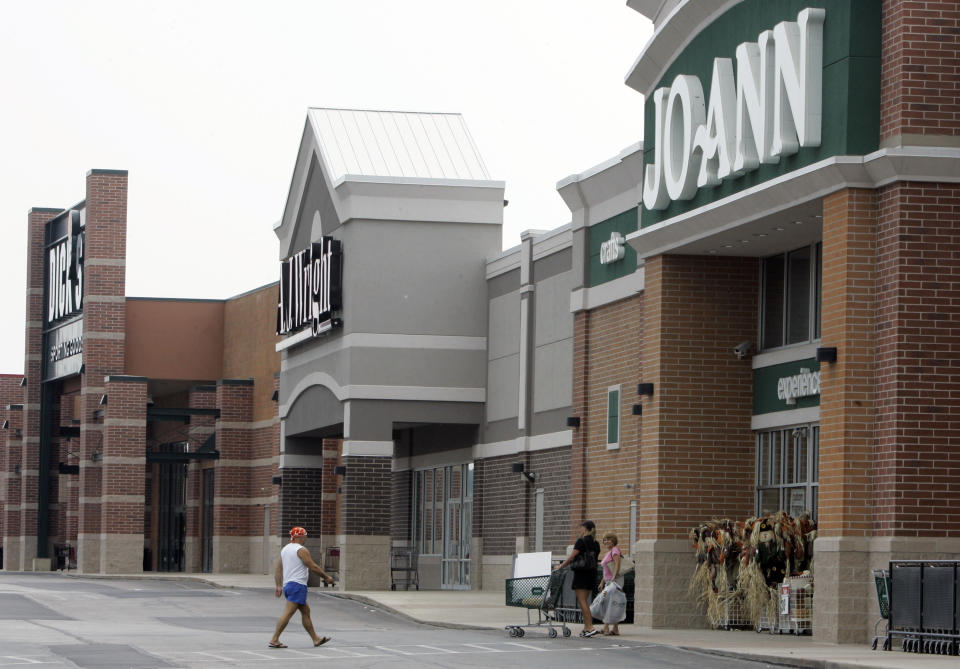Joann Stores CEO says retailer is doing what it can to ‘bend COVID curve’
The novel coronavirus pandemic has increased demand for face masks, not only among health care workers but all Americans shopping in public. The rush has created a global shortage, prompting fashion retailers like Vera Bradley to pivot to mask-making.
But major retailers aren’t the only sewers getting involved. Many Americans are sewing masks themselves to meet supply for their families, friends and local health care systems.
Joann Stores, the Ohio-based craft and fabric retailer, has led the charge for DIY personal protective equipment (PPE) with not only fabric and elastic but also online mask-making tutorials and, in some locations, classroom space and sewing machines. Joann Stores claims it has become the leading retail provider of fabrics for homemade masks.
“[We’re] doing what we can to bend this COVID curve and play a major role in PPE shortage,” said Wade Miquelon, chief executive officer of Joann Stores, on Yahoo Finance’s On the Move.
Joann customers have created 90 million masks. Some 10 million of the masks were made with fabric donated by Joann Fabrics, while customers purchased more than 3 million yards of material to create the rest of the masks.
“Joann, as you probably know, is the largest fabric and craft company in the U.S., and we provide the bulk of fabric and other materials like elastics,” said Miquelon.
Joann has also partnered with David’s Bridal and Neiman Marcus to expand mask production. David’s Bridal, the Pennsylvania-based bridal store, is sewing Joann fabrics and elastics into an additional 50,000 masks at their 258 retail store locations.
Additionally, Neiman Marcus, the Dallas-based department store, is producing masks with Joann-donated materials at four alteration facilities in Dallas, Los Angeles, New Jersey and South Florida. Joann Stores is also supplying fabric, elastic and clear vinyl directly to hospitals.
Business operations
Not everyone has been impressed with the company’s efforts. Employees questioned the quality of the fabrics used and the mask-making effort allegedly created difficult working conditions in some locations. Still, the company has also honored requests by employees who want to take an extended leave during the pandemic, said Miquelon.
“We… are doing what we have to keep the company strong, keeping our employees safe and ideally keeping them all gainfully employed both now and in the future,” said Miquelon, outlining company priorities.
Miquelon believes the company will be able to survive the pandemic without layoffs, despite not qualifying for government support through the PPP loans meant for small businesses.

“We really haven’t furloughed anyone. We’ve tried to start this with a commitment to be able to make it to the other side while keeping employees working in good stead and have jobs on the other side,” he said.
Miquelon noted that the economy will be hit hard if retail does not bounce back after the pandemic. Most retailers have been forced to shutter their stores during the pandemic, but some 95% of Joann Stores have remained open, half for curbside pickup and half with limited in-store shopping.
“We’re more fortunate than some because most states and counties have deemed us essential. Nevertheless, that’s a very difficult spot for the economy, and retail is by and large the largest employer in the economy,” he said.
More from Sarah:
Landlords offer retailers some relief amid the coronavirus outbreak
Mortgage forbearance reaches close to 7% of loans: Mortgage Bankers Association survey

 money
money 
